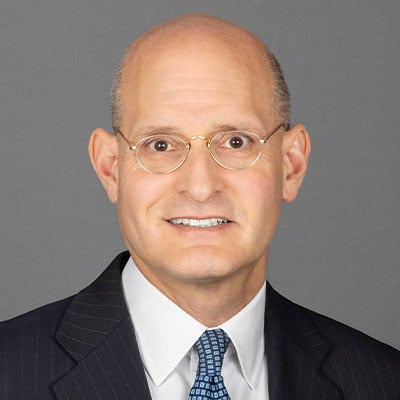Defendants Extend East Texas Hot Streak with Wi-Lan Verdict
Is the Eastern District of Texas ready to shed its reputation as a haven for patent plaintiffs? When it comes to jury trials, the numbers tell the story. Defendants fighting patent infringement claims once went three frustrating years without a single jury win in East Texas. So far this year, they've prevailed at trial seven times, far eclipsing the number of plaintiffs wins.
The latest defense victory came on Monday, when a federal jury in Tyler sided with a quartet of tech companies in a patent fight with Wi-LAN Inc., a patent licensing company represented by Vinson & Elkins. The jury found that Alcatel-Lucent USA Inc. and Ericsson Inc. don't infringe three Wi-LAN Inc. patents relating to wireless technology. The jury also found that HTC Corporation and Sony Mobile Communications AB don't infringe a fourth patent. The defense line-up included Kirkland & Ellis (for Alcatel-Lucent), Thompson & Knight (for Ericsson and Sony), and Sheppard Mullin Richter & Hampton (for HTC). Kirkland's Gregory Arovas was lead defense counsel at trial.
Wi-Lan isn't alone in its defeat. By our tally, there have been nine jury trials in EDTX so far this year involving patent infringement claims (for simplicity's sake, we're putting aside the two trials that focused just on patent validity; you can read our coverage of those trials here and here). In seven of the nine infringement trials, jurors returned damages of $0 dollars. The victorious defendants are T-Mobile Inc., Cisco Systems Inc., Gap Inc., Barnes & Noble Inc., TPV Technology Ltd., and Reynolds Consumer Products Inc. Our reports on five of those defense victories, in reverse chronological order, are here, here, here, here, and here.
The two plaintiffs wins, meanwhile, weren't exactly headline-grabbing. In June, Ericsson won roughly $8 million from six defendants in a case relating to wireless equipment. In late May, OPTi Inc. won a relatively paltry $2.1 million from Via Technologies Inc. OPTi had pegged damages at $13.5 million, as the EDTexweblog explains here.
A 7-2 record was once a pipe dream for defendants. Between 2001 and 2006, plaintiffs won 90 percent of patent trials held in the EDTX, and at one point posted a three-year winning streak. It wasn't until 2007 that defendants finally won a string of cases, as The American Lawyer explained in this cover story. Tort reformers like Ted Frank have argued that East Texas jurors, because of their relatively low incomes and lack of advanced degrees, were more likely to sympathize with supposed victims of IP theft.
So what's up with 2013? We searched desperately for an explanation, but East Texas practitioners say no seismic shift has taken place. Sorry, defendants: It may be just a matter of time before patent plaintiffs regain their momentum.
The defense hot streak hasn't surprised Michael Smith, a longtime EDTX practitioner with the Marshall, Tx.-based firm Siebman Burg Phillips & Smith. He said it's "long past time" to bury the notion that the district's jury pool favors plaintiffs. "Trial outcomes in the Eastern District are well within the national average. That's true if you look at the last two years or the last 13 years," Smith said.
Alan Fisch of Fisch Hoffman Sigler agreed that, when it comes to jury trials, the plaintiffs-friendly label attached to EDTX has long been misleading. "Yes, I am aware of this mythology surrounding the jurisdiction; but no, I don't subscribe to it," he said in an e-mail. "The jurors of East Texas routinely demonstrate that they are committed."
According to Smith, with so few data points, it's hard to read much into the recent success of defendants. "There's a natural ebb and flow," he said. "These cases were decided based on the facts."
REPRINTED WITH PERMISSION FROM THE JULY 17, 2013 EDITION OF THE AM LAW LITIGATION DAILY © 2013 ALM MEDIA INC. ALL RIGHTS RESERVED. FURTHER DUPLICATION WITHOUT PERMISSION IS PROHIBITED



